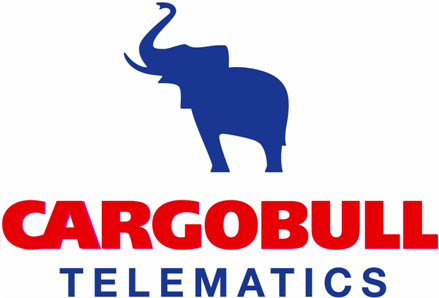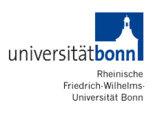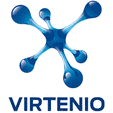The consortium of the project "Intelligent Container" consists of six research institutes and 15 industrial partners. The following is a summary of the 21 consortium partners:
aicas produces Java analysis and development tools for realtime and embedded systems. With headquarters in Karlsruhe, the firm has been serving the market since 2001. With aicas incorporated in the USA, an aicas office in France, and quality resellers throughout the world, aicas can help you develop high quality products quickly. aicas' flagship product is JamaicaVM, a hard realtime Java VM with fully deterministic garbage collection. JamaicaVM has been optimized for critical systems such as controls, as well as visualizations. The company primarily serves the industrial automation and mil-aero markets, with customers in the automotive and medical sectors as well. To ensure quality and minimal time to market, aicas also offers analysis tools and customization services for our products. Thread monitoring and the automatic program analysis tool VeriFlux help you find errors and ensure quality before you application is fielded. aicas is dedicated to your success.
The optimized OSGi software framework for the intelligent container will be based on the Jamaica Virtual Machine from aicas.
The ATB is a non-profit research institute funded by the German government. It is dedicated to basic and applied research in a wide range of agricultural technologies. The department of horticultural engineering employs more than 30 scientists and technical staff having long term experiences in harvest and post-harvest technology of fruit and vegetables, fruit sensing and precision horticulture technologies. The ATB is involved in many national and international R&D projects.
Within the project, the ATB takes responsibility for
- the development of banana greenlife and ripening models,
- heat transfer models inside banana cartons and between cartons in the container and practical measurements dealing with
- temperature distribution inside containers and
- directed ripening inside containers during transport by sea.
The BIBA is a scientific engineering research institute dealing with the issues of production and logistics systems. The competencies are the development, application and simulation of planning and control procedures, methods and information technology solutions for production and logistics systems.
The main objective of the BIBA in this project is the development of an integrated planning and control concept for the use of (semi-) autonomously acting intelligent containers. Furthermore, the BIBA simulates the logistics concept, defines and monitors the field tests and evaluates economic efficiency.
Schmitz Cargobull is the leading manufacturer of trailers and semi-trailers for commercial vehicles in Europe. The subsidiary Cargobull Telematics GmbH was founded in 2004 to develop telemetric systems for remote monitoring of temperature and location. The company provides telemetric units and communication services for the field tests of the intelligent container.
CHS Spezialcontainer - Shelter and Engineering GmbH develops, designs and produces special containers equipped with any desired system components according to customer specifications. The containers are manufactured in Bremen, Germany, and cover virtually all tasks and requirements.
CHS equips a standard reefer container with the electronical and mechanical components, which are required to implement an intelligent freight supervision system.
The main research focus of the ComNets group at the University of Bremen is performance analysis of communication networks and their protocols. This includes the implementation of prototypes as well as performance studies by mathematical analysis and simulation. ComNets is leading the wired and wireless communication activities of the project so that the sensed and reasoned data can be transmitted and be of use in logistical processes.
Dole is the world's largest producer and marketer of high-quality fresh fruit, fresh vegetables and fresh-cut flowers. Dole Fresh Fruit Europe is strongly aware of its responsibility for product quality and safety at every stage of the journey made by the fruit from the plantation to the consumer. With their opportunities in ship transport Dole will enable the overseas field test for the intelligent container.
ELBAU is a leader in the development and production of project-specific sensors. Has many years experience in the areas of MEMS sensors (pressure and flow sensors), optical systems, gas temperature and humidity sensors. ELBAU also specializes in smart sensors, which implements the sensor function in addition to an application-optimized solution for the housing, the electronics and software. Advanced automatic microelectronic technology systems engineering, testing and calibration and measurement techniques are available under clean room conditions. With regard to the sensor systems to analyze during the project, application experience in the technology and simulation exists (flow sensors, spectroscopic sensors for agriculture). ELBAU as a free service contractor can provide the industrial production of the sensors in a succession process and provide a link in the chain of custody.
In the context of the project ELBAU will perform in the field of sensor systems development and the technical implementation / design and production of prototypes of sensors like flow sensor, gas measuring range. Material skills, technology implementations, and simulations are carried out, investigated and optimized under operating conditions. Thereby advanced sensor principles such as MEMS technology and spectroscopic technologies are used. Issues of calibration and setup of sensor networks are elaborated with project partners and supervised in field test.
The European Microsoft Innovation Center (EMIC) is the Aachen, Germany based innovation lab and part of the Microsoft Research Organization. Focusing on embedded computing technologies, EMIC contributes a virtualization platform for the Intelligent Container telematics component.
Founded in 2003, EMIC works on collaborative information technology projects that capitalize on Europe’s established technology strengths and reflect the region’s priorities. Working closely together with academic institutions and industry partners, EMIC concentrates its efforts on embedded computing technologies.
About Microsoft
Founded in 1975, Microsoft (NASDAQ “MSFT”) is the worldwide leader in software, services and Internet technologies for personal and business computing. The company offers a wide range of products and services designed to empower people through great software.”
The Institute for Microsensors, -actors and --systems (IMSAS) is leading the project "intelligent container".
The technical tasks of IMAS in the project consist of the development of sensor components (thermal flow sensors and ethylene gas sensors) for the supervision of chilled food transports as well as the software integration of Decision Support Tools into wireless sensors and telemetric units.
The field tests of the precursor project are continued and managed by IMSAS with the support of additional industrial and research partners.
The project content overlaps with two research focuses of IMSAS. Firstly, the development of mirco sensors and related technological processes. The IMSAS runs facilities for silicon micromachining, galvanic microforming, and microsystem packaging in two fully equipped state-of-the-art clean rooms.
And secondly the autonomous control and supervision of transport processes in food logistics. Since 2004, IMSAS participates in the collaborative research centre SFB637 "Autonomous Cooperating Logistic Processes". In 2009, a mathematical model for the prediction of shelf life losses in relation to temperature deviations was integrated into the commercial wireless sensor from Ambient Systems by IMSAS. The research focus on autonomous logistics in now continued under the new project "intelligent container" founded by the Federal Ministry of Education and Research, Germany.
Mobile applications for monitoring the logistics processes based on commercially available devices (monitoring app)
Investigation of different ways to locate positions of pallets and container (cell-based positioning)
Practical implementation of radio systems / sensor networks development of different housings for the individual wireless sensor nodes, considerating the required robustness.
The department Communication Electronics of the Institute of Electrodynamics and Microelectronics is mainly involved in the design of systems and circuits for communications and signal processing.
The focus of the work is the mutual influence of micro-electronics and communications and the implications for system design. The range of topics of the department covers the complete course of hardware design consisting of miscellaneous parts. These include aspects of microelectronics and information technology as for instance modeling, implementation, synthesis verification/validation and hardware/software co-development, which have to be adjusted to the respective design targets.
The key aspects of ITEM.me in the current project are the simulation and design of sensor-electronics. Furthermore, the ability of RFID-ICs with senor-interfaces for the use in logistics is analyzed.
Another topic is the development of concepts for an optimized energy-efficiency of wireless sensor nodes. The focus is especially set on the interfaces between sensor-electronics and digital signal processing.
The Kühn Transport and Storage Company is on the market for 40 years as a medium-sized company and established itself as a forwarding agent for ultra-fresh produce at -1 ° to +2 ° Celsius. The current fleet of the company Kühn holds about 95 tractor units with a MAN Telematics and 105 trailers with a Cargobull Telematics. The company employs approximately 150 employees at two locations in Munster and Ostbevern. All food retailers and discounters are supplied the distribution center in Münster. Furthermore, the forwarding agency is very strong in the freight forwarder business. Kühn operates for a number of years with the forwarding agency program Win Sped of LIS Greven. Furthermore, Kühn has its own IT-company for maintenance of software, required for the necessary business processes. Here separate programmers are available to Kühn.
Kühn will assess the impact of FEFO warehousing by analyzing the flow of goods in the turnover warehouse in Münster. In addition, Kühn will integrate the approaches and technologies developed during this project in experimental processes in its warehouses to check their practical suitability. Thereby the possibilities and requirements of a linking of the obtained data to the underlying computer infrastructure will be examined.
Telematics:
The OHB Teledata business unit develops comprehensive solutions for the efficient management of transportation activities. The main focus of its activities is on OEM solutions for commercial vehicle producers, applications for government agencies and security organizations as well as geographical information systems and web-based database solutions.
Satellite Operations:
OHB offers satellite services on an exclusive basis via its share in the US based operator of the global ORBCOMM satellite system and in addition OHB distribute also other global satellite services like IRIDIUM.
Focus of OHB in the Project “The Intelligent Container”
Goal: Enhanced transparency and control of global supply chains by use of world wide available communication networks and sensor-supported surveillance and control of sensitive goods.
Task: Development and test of optimized container-telematic hard- and software with focus on modularity and low power consumption.
The OTARIS Interactive Services is an independent software developer specialized in Mobile Services, IT Security and Quality Management of IT-infrastructures. OTARIS develops interactive and web-based solutions for the optimization of corporate communication and business processes. Hereby the company perceives itself as a full-service technology partner for other companies using or planning to use communication services.
OTARIS creates Mobile Applications supporting business processes of our partner. Our aim is an economic efficient and realistic integration of the intelligent container for loading, unloading and transport.
Furthermore, the safety concept is studied and developed with respect to the components of the communication system, sensor networks, and the overall system. Likewise, tasks in the field of virtualization will be undertaken in the context of support for software development of EMIC.
ProSyst Software, as a privately held SME, was founded in 1997. ProSyst offers client and server side OSGi service platforms as well as generic and custom. As a leading OSGi software provider ProSyst has very broad experience in developing, consulting and executing OSGi-based projects. In the Intelligent Container project ProSyst provides his client and server side OSGi service platform, develops new communication interfaces for CAN and CoAP and supports the development of the OSGi-based software.
RUNGIS express AG is one of Germany's largest wholesale companies for fine foods. The company has several decades of experience in the import of delicacies from more than 60 countries in the world. Christian Helms (CEO), a longtime professional in the logistics sector and Thomas Schemmel (COO), a very successful Austrian cook and Chef de Cuisine form the Executive Board of RUNGIS express.
The company's headquarter is Meckenheim (NRW). From there the goods are delivered with three-chamber cooling-trucks via eleven logistics terminals throughout Germany and into foreign markets.
One hundred percent of RUNGIS express AG is owned by the Cool Chain Group Holding AG (CCG) in Bremen, which is specialized in the transport and trade of temperature-controlled products. CCG is one of the founders of the Cool Chain Association (CCA), a non-profit organization dedicated to harmonizing and improving the transportation of temperature-sensitive goods, the observance of seamless cool chains and the introduction of quality standards for the logistics industry.
RUNGIS express AG supports the “Intelligent Container project” of the University of Bremen, by adding temperature sensors to some trucks and their load which record the temperature during transportation in order to derive relationships between the temperature in transport and the final durability of the products.
Practically speaking, the dataloggers record the temperature of Spanish meat and fish as well as fruit and vegetables on their way from the producer in Spain via several distribution centers to the RUNGIS headquarter in Meckenheim. Subsequently, the records of the data loggers are interpreted and the goods are examined microbiologically in collaboration with the University of Bonn. A shelf life model is used to calculate the remaining minimum durability as a function of temperature deviation x during a period of time y.
SEEBURGER is a global provider of business integration and secure managed file transfer (MFT) solutions that streamline business processes, reduce operational costs, facilitate governance and compliance, and provide visibility to the farthest edges of the supply chain to maximize ERP effectiveness and drive new efficiencies. All solutions are delivered on a unified, 100% SEEBURGER-engineered platform that lowers the total cost of ownership and reduces implementation time. With more than 25 years in the industry, SEEBURGER today is ranked among the top business integration providers by industry analysts, serves thousands of customers in more than 50 countries and 15 industries, and has offices in Europe, Asia Pacific and North America. In the project SEEBURGER provides the business integration platform which collects this new form of sensor-based supply chain information and hand them over to the various logistics departments and backend-systems to initialize the optimization of distribution (“first expires – first out”).
Texas Instruments develops analog, microcontroller, digital signal processing, RF and DLP® semiconductor technologies that help customers deliver consumer and industrial electronics products with greater performance, increased power efficiency, higher precision, more mobility and better quality.
As a leading supplier of RF and RFID technologies, Texas Instruments contributes from theoretical considerations to prototype proposals and real onsite application support for the wireless connection of the sensors to the hubs.
The interdisciplinary working group ![]() Cold Chain Management of the Rheinische Friedrich-Wilhelms-University of Bonn was founded 2003. Main research fields are:
Cold Chain Management of the Rheinische Friedrich-Wilhelms-University of Bonn was founded 2003. Main research fields are:
- development of shelf life models
- investigation and implementation of novel temperature monitoring systems
- development of methods to characterize meat freshness
- optimization of packaging technologies for chilled products
- investigation of anti-microbial properties of certain materials
The group is also the coordinator of the international ![]() network Cold Chain Management
network Cold Chain Management
The VIRTENIO GmbH develops innovative miniature computers with radio transceivers (radio modules).
These smart wireless devices are able to collect process and transmit data wirelessly while saving resources and energy, e.g. collecting and analyzing data in container logistics.
The unique feature package VIRTENIO is offering to its customers contains an optimized radio module (hardware) and a virtual machine (system software). This system software makes it possible that applications developed in Java™ are executable on resource constrained embedded systems.
As a qualified supplier VIRTENIO will provide the BMBF project “intelligent container” with project-adapted wireless modules and an embedded JAVA™ implementation. Additionally VIRTENIO customizes the advanced multi-hop radio protocol stack, helps to develop resource and energy saving software and will test systems as well.

















